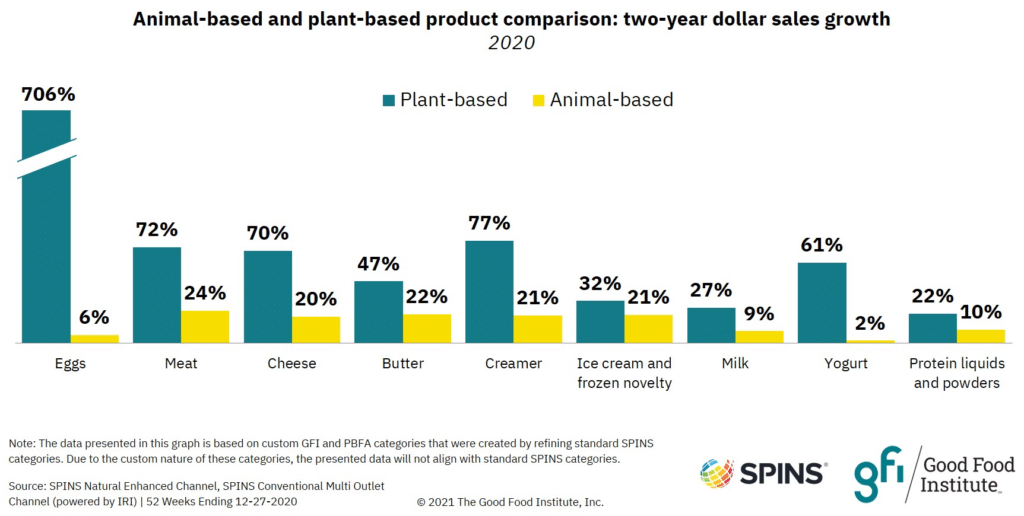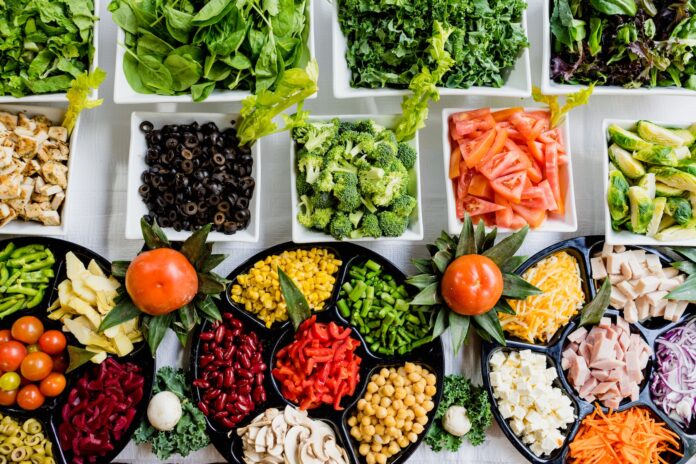One of the most significant technological developments of the 21st Century is rarely talked about in a world obsessed with cloud computing, smartphones and social media – however, plant-based foods have emerged as a solution that may solve issues surrounding world hunger and the environment. It may not seem the case at first thought, but technology surrounding our diets has come on leaps and bounds over the past 20 years or so. With this in mind, let’s explore the impact technology has had on the food we eat.
The plant-based industry has grown significantly in recent years, becoming recognisable on a global scale. Although the concept isn’t new, plant-based foods are largely growing in popularity due to growing levels of awareness over the impact that meat can have on the environment and our health. Plant-based acceptance is also growing due to technology helping to improve the quality of meat-free foods of late.
For instance, in the US, if every citizen replaced beef, chicken and pork in their diet with a meat-free option, it would save 280 million metric tons of carbon dioxide – whilst also mitigating the prospect of water scarcity due to 50% of the country’s freshwater use being reserved for livestock production.

(Image: Good Food Institute)
As the data above shows, plant-based foods are growing rapidly in comparison to their animal-based counterparts.
Let’s take a closer look at the technology that’s driving this dietary revolution on a global scale, as well as the innovations that support the changing of our diets for the better:
Driving Meat-Free Innovation
Innovations in plant protein have the potential to transform the food industry as we know it. By normalising the use of plant-based protein, technology can help to use fewer of our planet’s resources, cut down on carbon emissions and protect larger volumes of species. We could also help to fight world hunger as the population continues to grow.
We can see many examples of tech-driven plant-based proteins that are already becoming commonplace in grocery stores and supermarkets globally. One of the most notable arrivals is Beyond Meat, which uses technology to transform pea protein to replicate many traditional meat foods like burgers and chicken strips.
Peas have become an unlikely hero in the protein alternative landscape due to their lower environmental impact in terms of land and water use. Their greater nutritional value has turned the food into a versatile, allergy-friendly, non-GMO leader in meat-free proteins.
However, as Impossible Foods found, there are more molecular solutions when it comes to replicating animal protein. Impossible Foods found that it’s possible to replicate a molecule called heme – which is heavily present in meat and is a key factor in its flavour and smell. By using a protein in plants that contain heme, the company has managed to create burgers that look and taste extremely similar to its animal meat counterparts – so much so that most people would never know the difference.
The Rising Influence of Social Media
Technology is also growing to make us more aware of what we eat, whilst also helping to inform our perceptions on where we can find high-quality food.
Social media platforms have generally helped to improve our understanding of what constitutes a healthy and unhealthy diet, whilst reviewing platforms mean that we can keep restaurants and food stores in check with ease.
Technology has also improved our access to education as a result of technological advancements promoting us to search for more health-conscious and organic foods. The more we can understand the effects of certain foods on our health, the more prepared we can be to make informed decisions about our diets.
Improving the Quality of Life for Animals
Not only can technology supply us with plant-based alternatives that could mean the end of our dependence on livestock, but it can also help us to care for our pets in a more comprehensive way.
For example, let’s take a look at the Obe ProBowl, a device that determines the ideal level of food and water for your pet based on its breed and weight. The ProBowl is an example of a product that shows that our passion for a better quality of life is helping to keep our pets healthy.
We’re also seeing a more gradual revolution in our understanding of animal diets taking place, thanks to the greater availability of analytical tools. Dietary breakdowns have shown that the typical diet we provide horses with has changed significantly in a relatively short space of time – with traditional diets consisting of oats and mash, giving way to purpose-developed racing mix.
While traditional diets for horses were comprised of small portions of chaff, today owners and trainers alike can buy specialist chaff products that are optimised to suit each horse’s body weight, breed and even palette – in the case of apple-flavoured chaff for fussier horses.
The impact that technology has had on the food industry is largely immeasurable – for both us and the animal kingdom. In improving the quality of life whilst mitigating the damaging effects of agriculture on the environment, the combination of food and technology may ultimately prove to be the century’s most important partnership in terms of sustainability.
If you like our content please keep us going for as little as £2 a month







